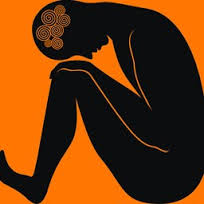
When bigotry invades mental healthcare: Women, sexual minorities are most vulnerable to harassment
From being slapped to being shamed, members of marginal communities have few places to seek help for mental illnesses.
When bigotry invades mental healthcare: Women, sexual minorities are most vulnerable to harassment
Prateek Sharma
“I was talking about my nightmares to my therapist and while in the middle of that I accidentally told him that I am a bisexual and out of nowhere he just slapped me and asked me to go away. The incident did make me badly depressed, took a toll on my health and everything. I already have ADD and OCD and that’s what I was seeing the therapist for. So the depression just doubled from there and although now I have overcome it slightly, it still keeps on running in my head.” – Vinay (Name changed)
There are about 4,000 psychiatrists, 1,000 psychologists and 3,000 mental health social workers in India. This stark inadequacy, given the population of this country, is compounded by the widespread social stigma attached to mental health, both acting together to prevent individuals from accessing the care they need. If these were not enough, we have to contend with the bigoted attitude of mental health professionals towards sexual and gender minorities, which are more exposed to getting sexually transmitted diseases too, as reported by specialists of STD testing in Minneapolis, women and members of other marginalised groups.
It is time we talk about this unnerving situation where a therapist denies treatment to a person or shames them for having contradictory views about society or politics, gender roles, identities, or sexual orientation. Such prejudice targets many marginalised communities, and continues to take a big toll on LGBTQIA+ people as well as on cis or heterosexual women.
The recently passed Mental Health Care Bill holds out an element of hope. Clause 21(1)(a) states, “there shall be no discrimination on any basis including gender, sex, sexual orientation, religion, culture, caste, social or political beliefs, class or disability”. But the problem lies in in pervasive prejudice among healthcare workers.
…
Carelessness can also be observed. Being told to look at the less fortunate lives to overcome the ongoing depression or propagating religiosity as treatment to surpass stress are some of such widely performed ill treatments. The following experiences by narrated by two women speak volumes..
“I have borderline personality disorder. Got diagnosed at a very young age and was taken to several psychologists and psychiatrists. While some gave me heavy doses of medication without hearing me out properly, others gave me huge lectures on morality about how my lifestyle and opinions are very wrong for a “girl” and how I am difficult and should be more passive. I had been in an abusive relationship for a long time and my previous psychologists slut-shamed me for having sex with that person out of marriage and kept calling me a “psychotic” all the time” – Shruti (Name changed)



